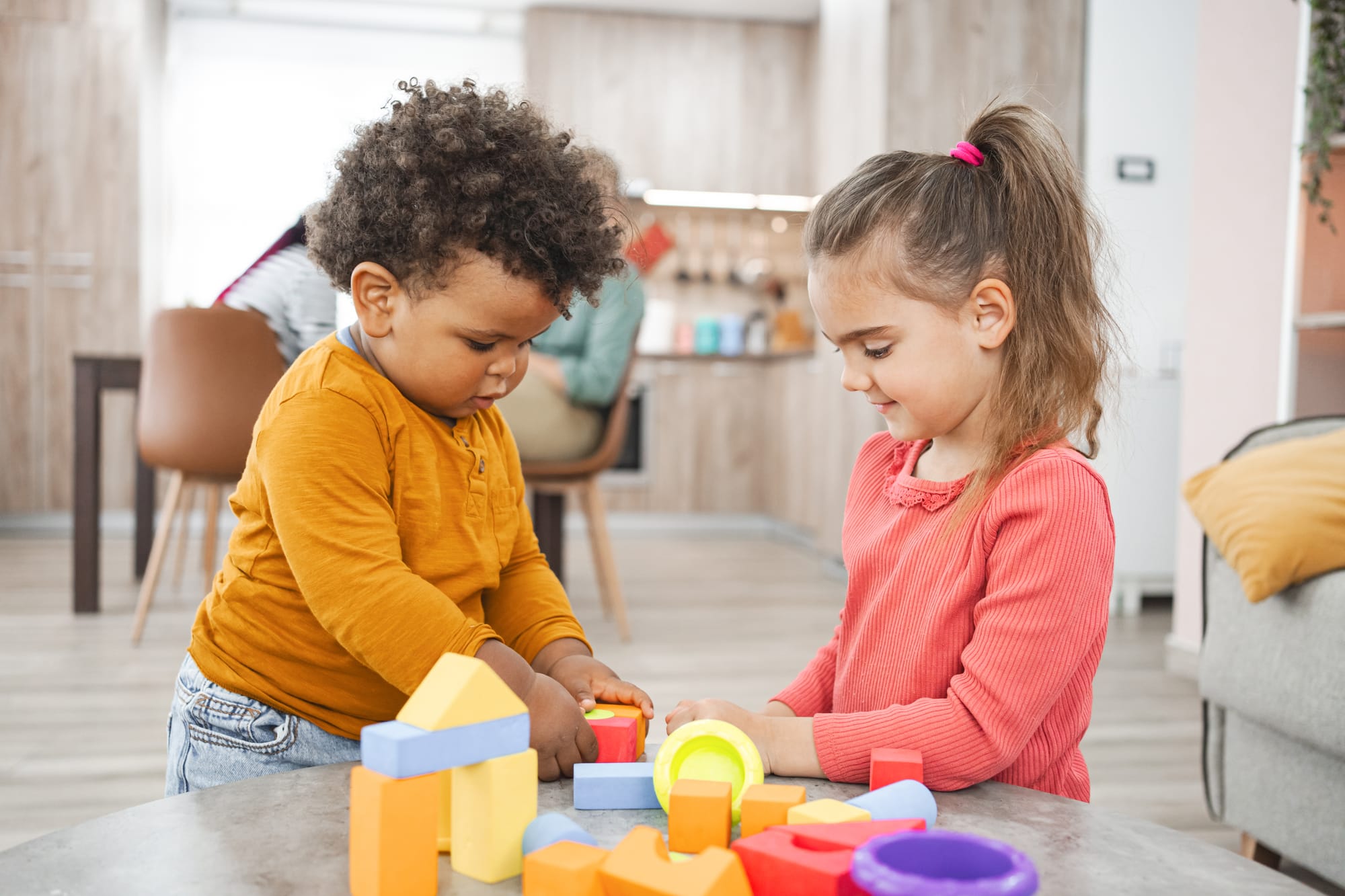The Importance of Play

Children learn through their play
Never underestimate the value of play! While playing, children learn and develop
- Cognitive skills—like choosing the blocks to build a tower as high as possible
- Language skills—like learning the vocabulary words they need for different play scenarios
- Literacy skills—like writing an appointment in a pretend dentist’s office
- Physical abilities—like gluing a collage and running on the playground
- Social skills—like playing together in a pretend car wash with workers and customers
- Emotional skills—like waiting for a turn to be the pretend bus driver
Play is healthy
Play helps children grow strong and healthy. It also can help prevent child obesity through its active nature.
Play reduces stress
Play helps children grow emotionally. It is joyful and provides an outlet for anxiety and stress.
Play outside
Think about your own outdoor experiences of building forts, sledding in the winter, or playing with other children in the neighbourhood. Make sure your children create outdoor memories, too.
Play and learning go hand in hand
Play and learning are not separate activities but are closely connected. Think about them as a science lecture with a lab—play is a child’s lab.
Play is a child’s context for learning
Children practice and reinforce their learning in multiple areas during play. For example, in playing restaurant, children write and draw menus, set prices, take orders, and play out roles. Play provides rich learning opportunities and leads to children’s success and growth in self-esteem.
Taken from
https://www.naeyc.org/resources/pubs/tyc/aug2018/backpack/things-every-parent-know-play